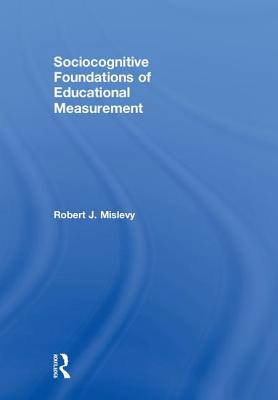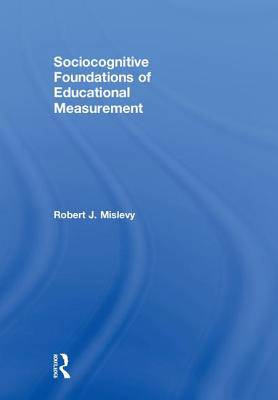
- Afhalen na 1 uur in een winkel met voorraad
- Gratis thuislevering in België vanaf € 30
- Ruim aanbod met 7 miljoen producten
- Afhalen na 1 uur in een winkel met voorraad
- Gratis thuislevering in België vanaf € 30
- Ruim aanbod met 7 miljoen producten
Omschrijving
Several key developments challenge the field of educational measurement today: demands for tests at larger scales with higher stakes, an improved understanding of how people develop capabilities, and new technologies for interactive digital assessments. Sociocognitive Foundations of Educational Measurement integrates new developments in educational measurement and educational psychology in order to provide researchers, testing professionals, and students with an innovative sociocognitive perspective on assessment. This comprehensive volume begins with a broad explanation of the sociocognitive perspective and the foundations of assessment, then provides a series of focused applications to major topics such as assessment arguments, validity, fairness, interactive assessment, and a conception of "measurement" in educational assessment. Classical test theory, item response theory, categorical models, mixture models, cognitive diagnosis models, and Bayesian networks are explored from the resulting perspective. Ideal for specialists in these areas, graduate students, developers, and scholars in both educational measurement and fields that contribute to a sociocognitive perspective, this book consolidates nearly a decade of research into a fresh perspective on educational measurement.
Specificaties
Betrokkenen
- Auteur(s):
- Uitgeverij:
Inhoud
- Aantal bladzijden:
- 438
- Taal:
- Engels
Eigenschappen
- Productcode (EAN):
- 9780415716963
- Verschijningsdatum:
- 5/03/2018
- Uitvoering:
- Hardcover
- Formaat:
- Genaaid
- Afmetingen:
- 178 mm x 254 mm
- Gewicht:
- 1009 g

Alleen bij Standaard Boekhandel
Beoordelingen
We publiceren alleen reviews die voldoen aan de voorwaarden voor reviews. Bekijk onze voorwaarden voor reviews.











